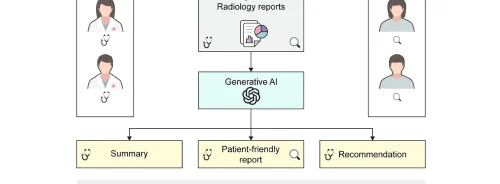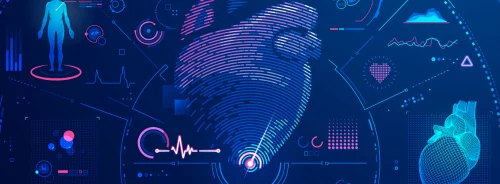In the wake of the COVID-19 pandemic, the vulnerabilities of the public health infrastructure have been laid bare, prompting urgent calls for bolstering our defences against future threats. This renewed focus on resilience has sparked interest in leveraging advanced technologies, particularly generative AI, to not only combat infectious diseases but also to address broader healthcare disparities and improve access to essential services. According to a recent commentary in Health Affairs by a team from consulting firm ICF and Google, led by Karen B. DeSalvo, generative AI stands out as a transformative tool poised to reshape the landscape of public health.
Transforming Public Health: Harnessing Generative AI for Communication, Education, and Efficiency
Generative AI encompasses a range of technologies designed to create new content based on existing data, mimicking human creativity and intelligence. While still evolving, these technologies hold promise in several critical areas within public health. One such area is public communication and education, where personalised health information can be disseminated efficiently across diverse demographics and languages. This capability not only enhances outreach efforts but also ensures that information is tailored to meet the specific needs of individuals and communities, thereby improving overall health literacy and responsiveness during crises.
Furthermore, generative AI offers substantial potential in enhancing organisational efficiencies within public health administrations. By automating administrative tasks, summarising vast amounts of data, and providing analytic support, AI tools can alleviate the clerical burden on healthcare personnel. This efficiency boost is particularly crucial amidst staffing shortages and increasing demands on public health systems, allowing professionals to focus more on strategic initiatives and less on bureaucratic tasks.
Advancing Public Health Security: Generative AI's Role in Predictive Analytics and Infrastructure Integration
Another compelling application lies in the realm of predictive analytics and early detection. In an era where emerging threats can quickly escalate into global crises, the ability to extract actionable insights from complex data sources such as medical reports and social media becomes paramount. Generative AI's capacity to analyse unstructured data swiftly and accurately enables public health officials to anticipate and mitigate potential health risks more effectively, thereby safeguarding population health proactively.
However, integrating generative AI into public health infrastructure comes with its share of challenges. Fragmentation across state and local levels, coupled with varying levels of technological adoption, poses implementation hurdles. Addressing these challenges requires not only technological innovation but also a concerted effort to build public trust. Ensuring transparency, fairness, and equity in AI applications is essential to overcoming skepticism and fostering acceptance among communities.
Looking ahead, the architects of Public Health 3.0 envision a future where generative AI plays a central role in advancing health equity and resilience. By harnessing the transformative power of AI technologies, public health officials can bridge innovation gaps and accelerate progress towards equitable health outcomes for all. As we navigate the complexities of a rapidly evolving healthcare landscape, embracing these advancements will be crucial in safeguarding public health and preparing for the challenges of tomorrow.
Source: Health Affairs
Image Credit: iStock






